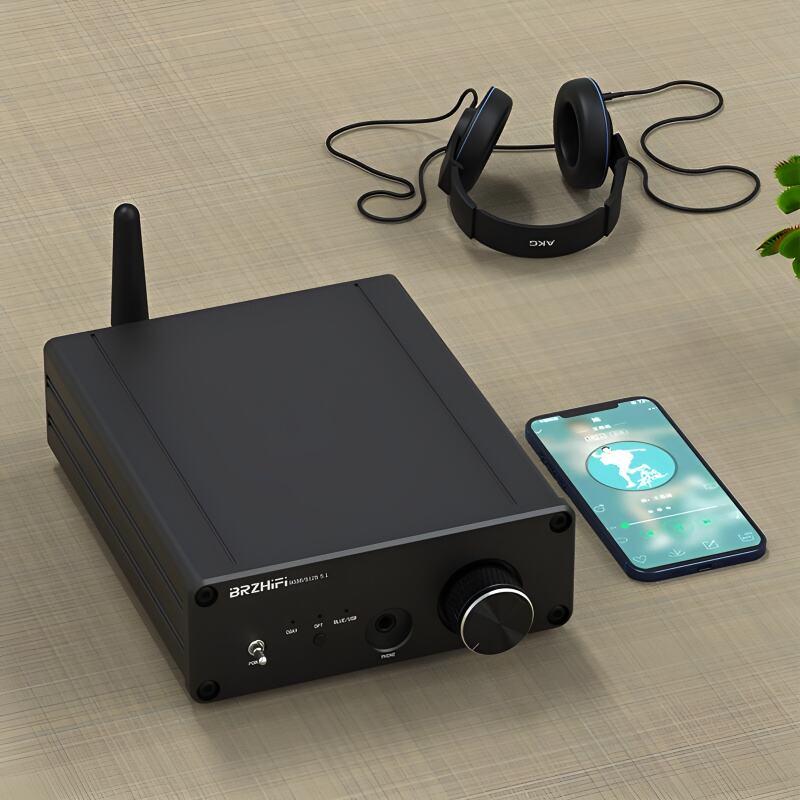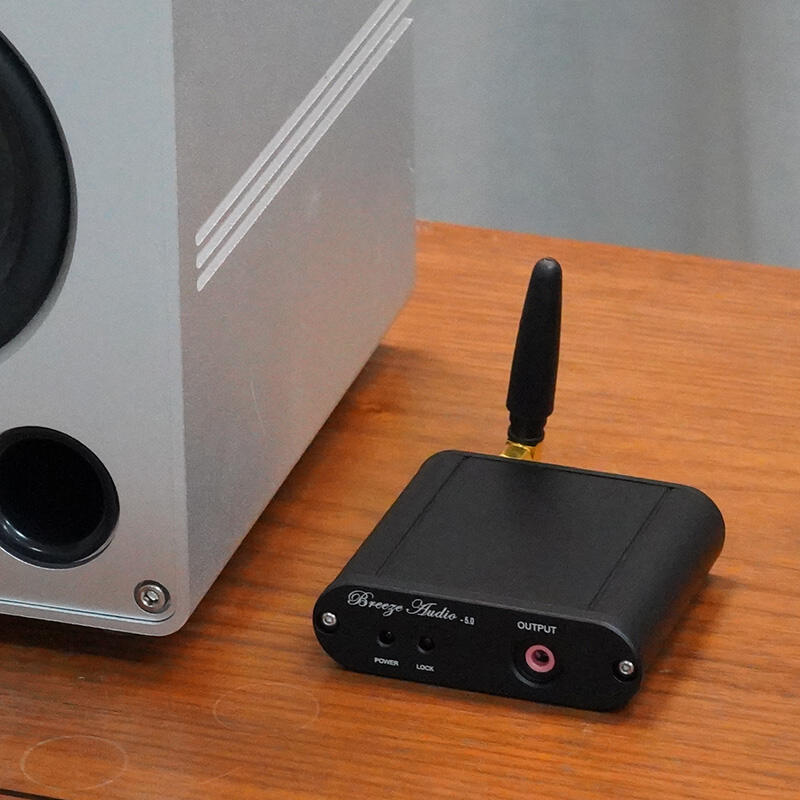Understanding the Revolutionary Impact of Digital Audio Processing
The world of audio technology has been transformed by audio decoders, sophisticated digital components that translate compressed audio data into crystal-clear sound. These essential tools serve as the bridge between digital audio files and the rich, immersive listening experiences we enjoy today. From streaming music services to professional recording studios, audio decoders work tirelessly behind the scenes to ensure optimal sound reproduction.
Modern audio decoders have revolutionized how we experience sound, offering unprecedented levels of clarity and fidelity that were once impossible with analog systems. They process complex audio signals with remarkable precision, preserving subtle nuances while eliminating unwanted noise and distortion. This technology has become increasingly sophisticated, enabling everything from high-resolution music playback to advanced surround sound systems.
The Core Mechanics of Audio Decoding
Digital Signal Processing Fundamentals
Audio decoders operate through a series of complex algorithms that convert compressed digital data back into audible waveforms. This process begins with analyzing the incoming bitstream, where the decoder identifies the format and encoding method used. The system then applies sophisticated mathematical calculations to reconstruct the original audio signal, ensuring that every frequency and amplitude value is accurately preserved.
The precision of modern audio decoders allows them to handle multiple audio formats while maintaining exceptional sound quality. They employ various techniques such as sample rate conversion, bit depth processing, and error correction to deliver optimal audio output. This versatility makes them indispensable in both consumer electronics and professional audio equipment.
Real-time Processing Capabilities
One of the most impressive aspects of audio decoders is their ability to process sound in real-time. This means they can convert digital signals into analog sound instantaneously, without any perceptible delay. The processing power required for this feat is substantial, involving millions of calculations per second to ensure seamless audio playback.
Advanced audio decoders utilize specialized processors designed specifically for audio processing tasks. These dedicated chips can handle complex operations with minimal latency, ensuring that the audio remains perfectly synchronized with video content or live performances. The real-time processing capabilities also enable features like dynamic range compression and equalization adjustments on the fly.

Enhanced Audio Quality Features
Noise Reduction Technologies
Modern audio decoders incorporate sophisticated noise reduction algorithms that can identify and eliminate unwanted sounds while preserving the intended audio content. These systems analyze the incoming signal for patterns that indicate noise, such as consistent background hum or random interference, and selectively filter them out without affecting the main audio signal.
The implementation of advanced noise reduction techniques has made it possible to recover and enhance audio from various sources, even those with significant quality issues. Audio decoders can apply multiple layers of noise reduction, each targeting specific types of interference, resulting in remarkably clean and clear sound output.
Dynamic Range Optimization
Dynamic range optimization is another crucial feature of audio decoders that contributes to improved sound clarity. This technology automatically adjusts the balance between the loudest and quietest parts of an audio signal, ensuring that all elements remain audible without distortion. The decoder analyzes the incoming audio in real-time and makes precise adjustments to maintain optimal listening levels.
Professional audio decoders offer customizable dynamic range settings that can be tailored to different listening environments and preferences. This flexibility allows users to achieve the perfect balance between dramatic impact and comfortable listening levels, whether in a home theater setup or a professional recording studio.
Integration with Modern Audio Systems
Compatibility and Format Support
Today's audio decoders are designed to handle a wide range of digital audio formats, from common compressed formats like MP3 and AAC to high-resolution formats such as FLAC and DSD. This broad compatibility ensures that users can enjoy their entire music collection without worrying about format restrictions or quality limitations.
The versatility of modern audio decoders extends to their ability to process multi-channel audio formats, supporting everything from basic stereo to complex surround sound configurations. This flexibility makes them essential components in home theater systems, professional recording studios, and streaming media players.
Smart Device Integration
Audio decoders have evolved to seamlessly integrate with smart devices and networked audio systems. Modern decoders can receive audio streams over Wi-Fi or Bluetooth, process them in real-time, and output high-quality sound through connected speakers or headphones. This integration enables convenient wireless audio streaming while maintaining excellent sound quality.
The incorporation of smart features allows audio decoders to adapt to different listening scenarios automatically. They can adjust their processing parameters based on the type of content being played, the listening environment, and even the specific output device being used, ensuring optimal sound quality in any situation.
Future Developments in Audio Decoder Technology
Artificial Intelligence Integration
The future of audio decoders lies in the integration of artificial intelligence and machine learning algorithms. These advanced technologies will enable decoders to learn from listening patterns and automatically optimize sound quality based on individual preferences and environmental conditions. AI-powered audio decoders will be able to predict and preemptively adjust settings for different types of content and listening situations.
Research is already underway to develop neural network-based audio processing systems that can enhance sound clarity far beyond what is currently possible. These systems will be able to separate and enhance specific elements of an audio signal with unprecedented precision, potentially revolutionizing how we experience recorded sound.
Enhanced Processing Efficiency
Ongoing developments in processor technology are leading to more efficient and powerful audio decoders. These advancements will enable even more sophisticated real-time processing capabilities while reducing power consumption and heat generation. Future audio decoders will be able to handle multiple high-resolution audio streams simultaneously without compromising on quality or performance.
The increased processing efficiency will also lead to smaller, more compact decoder designs that can be integrated into a wider range of devices. This miniaturization will make high-quality audio processing accessible in portable devices and wearable technology, further expanding the possibilities for immersive audio experiences.
Frequently Asked Questions
What makes audio decoders essential for modern sound systems?
Audio decoders are crucial because they convert compressed digital audio data into high-quality sound signals that can be played through speakers or headphones. They handle complex processing tasks like format conversion, noise reduction, and dynamic range optimization, ensuring optimal sound quality across different listening scenarios.
Can audio decoders improve the sound quality of low-quality recordings?
While audio decoders can enhance certain aspects of low-quality recordings through noise reduction and signal processing, they cannot create information that wasn't present in the original recording. However, they can significantly improve the listening experience by optimizing the available audio data and minimizing unwanted artifacts.
How do audio decoders handle different file formats?
Modern audio decoders are designed with multi-format compatibility, allowing them to process various audio file types including MP3, AAC, FLAC, and many others. They automatically detect the format of incoming audio data and apply the appropriate decoding algorithms to ensure accurate reproduction of the original sound.

